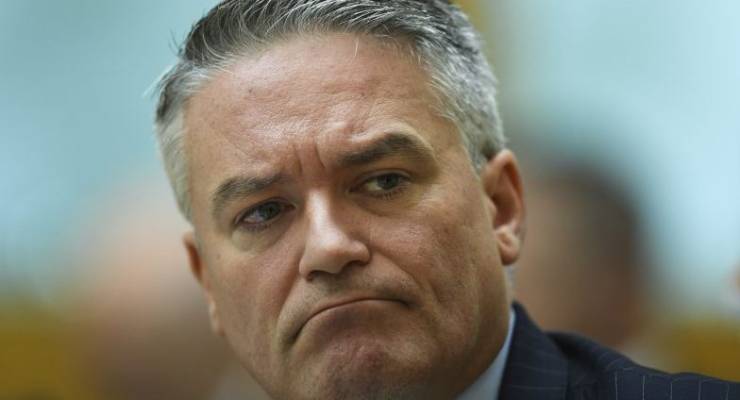
The Coalition and the business lobby need to find a defensible position on wage stagnation quick smart because Labor is going to use it to clobber them all the way to the election. Forget boats, forget the coming Labor recession, forget $200 billion in new taxes — if the conversation is all about wages from now until May the government will face a wipe out, even bigger than today’s truly rotten Newspoll suggests.
The government’s strategy on wages has — as Crikey has detailed for a couple of years now — been to try to pretend the issue will go away in another quarter or two — just keep forecasting a return to strong growth and hope only economists and the Press Gallery notice you keep revising your forecasts down every six months.
Bill Shorten finally killed off that strategy by telling the Financial Review’s circle jerk of business elites last week that the election would be a “referendum on wages”. The election probably won’t be anything of the sort, but boy, did that statement put the wind up business, the government — and their apologists at the AFR — and get the media focused on an issue that most effectively sums up the electorate’s sense that our political and economic system is delivering for elites but not for ordinary families.
Mathias Cormann’s approach late last week was to (finally) acknowledge low wages growth but insist it was really a good thing, because it reflected the kind of flexibility that traded off lower wages growth for lower unemployment. Wage stagnation was thus a “design feature” of the current system. You could get away with that argument with economists but telling voters that stagnant wages were a deliberate policy is unlikely to win votes — certainly not among the vast majority of working-age people who are actually in work.
Labor was only too happy to help amplify Cormann’s remarks. The newly (and seemingly wrongly) promoted Linda Reynolds provided a comedic interlude on the issue yesterday — in the course of spectacularly stuffing up on three completely different topics — by attacking Cormann’s statement under the illusion it was actually Bill Shorten’s. The government then took to handing out information sheets to journalists explaining that wages had increased ahead of inflation — not exactly much of a boast when the best you can claim is that wages grew by 0.5% more than inflation in 2018.
So the government’s positions on wage stagnation in the last few days have been that it’s not an issue, that it’s an issue but things are getting better, hey isn’t it great because it keeps unemployment down, and Bill Shorten’s an idiot engaged in the politics of envy. Meantime, at the AFR — where the editor has described discussion about stagnant wages as “whingeing” — the policy continues to be to deny that there’s a problem at all and that if only we gave business tax cuts, wages growth would surge to a mighty 3.4%. For the record, Australia’s private sector workers had wage rises of 3.8% back in 2012, under our allegedly investment-deterring 30% company tax system. The AFR also continues to parrot the business line that wage rises will follow productivity increases — a claim thoroughly and forensically discredited by Saul Eslake last year, who noted productivity has been outstripping wages growth since the early noughties.
All of this will be music to Labor’s ears, of course — it perfectly suits both Labor’s agenda, and its effort to frame the government as hopelessly out-of-touch and allied to the scandal-plagued business sector, that the government and business are unable to offer a coherent — or even accurate — response on wages stagnation. The one thing Labor would not want to see would be, say, the government using the budget to announce that wages growth was now its priority and it had a suite of measures to address it. Given the Coalition has spent five years in utter denial about the issue, the chances of that are slim indeed.








Crikey is committed to hosting lively discussions. Help us keep the conversation useful, interesting and welcoming. We aim to publish comments quickly in the interest of promoting robust conversation, but we’re a small team and we deploy filters to protect against legal risk. Occasionally your comment may be held up while we review, but we’re working as fast as we can to keep the conversation rolling.
The Crikey comment section is members-only content. Please subscribe to leave a comment.
The Crikey comment section is members-only content. Please login to leave a comment.